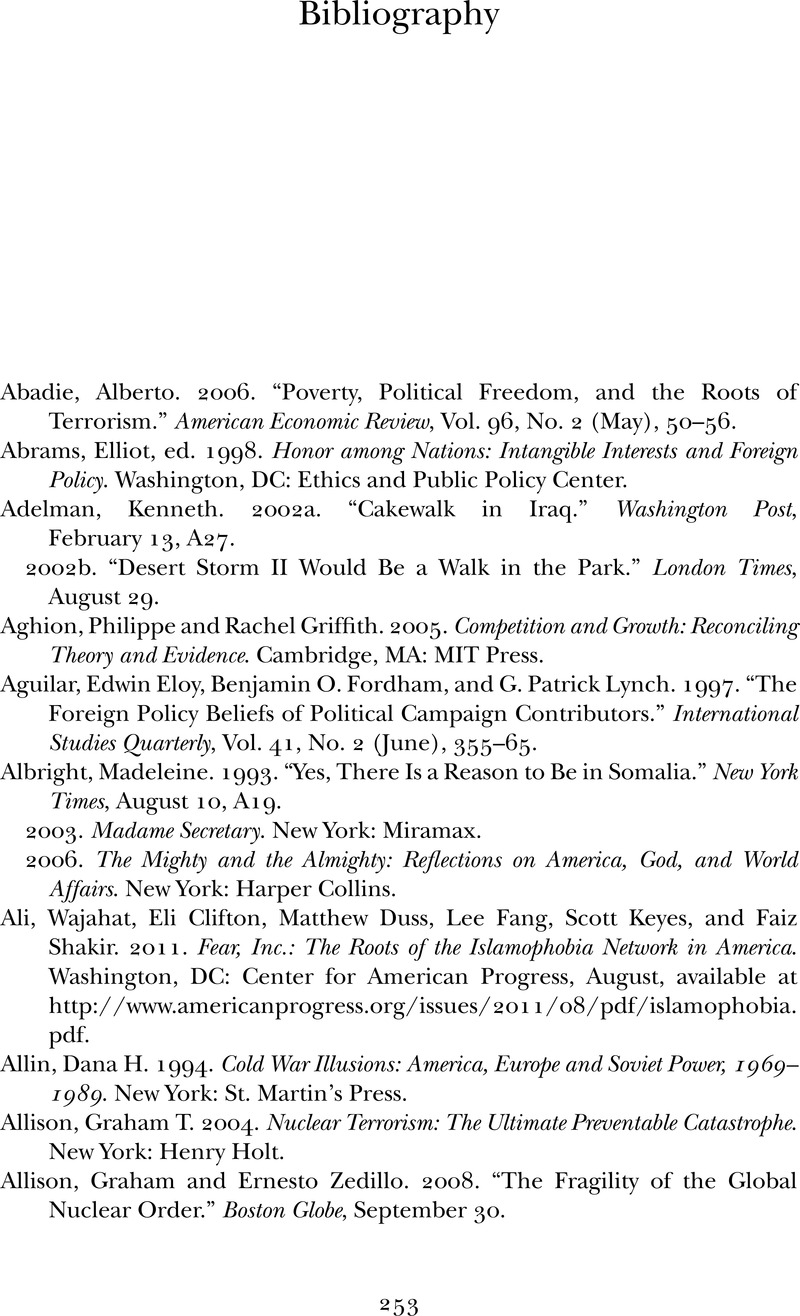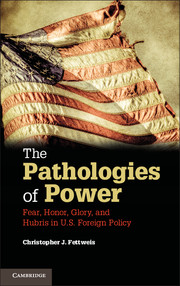Bibliography
Published online by Cambridge University Press: 05 June 2014
Summary

- Type
- Chapter
- Information
- The Pathologies of PowerFear, Honor, Glory, and Hubris in U.S. Foreign Policy, pp. 253 - 290Publisher: Cambridge University PressPrint publication year: 2013

